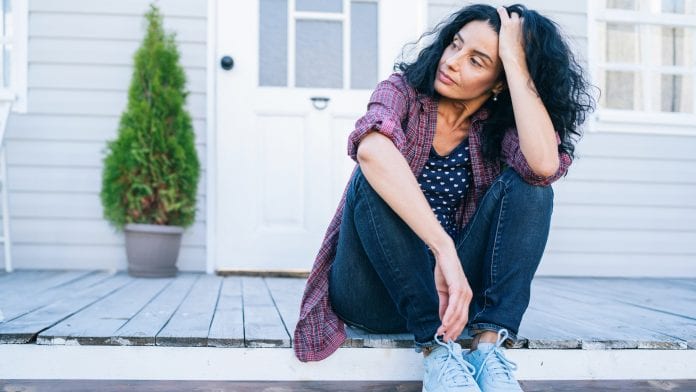
New data has revealed the impact that COVID-19 has had on menopausal women – with almost half experiencing an increase in worse mental health.
The research, conducted by insight and strategy consultancy Britain Thinks for new online clinic My Menopause Centre, has found that 47% of menopausal women say the COVID-19 pandemic has made the emotional symptoms of the menopause worse, with a further third (32%) experiencing exacerbated physical symptoms, and 43% say COVID-19 has reduced the amount of support available to help them with their symptoms. The experts warn that this has exacerbated feelings of isolation.
The study involved a nationally representative online survey of 2,087 adults in the UK and qualitative research with women with experience of the menopause, male partners, and workplace managers.
Menopause is still a taboo
According to the research, the menopause is still considered a taboo, with 47% of the public agreeing, and 43% agreeing that it is not well understood, and only 24% of women felt prepared for the menopause transition. Furthermore, 55% underestimated the physical symptoms and 53% the emotional symptoms of the menopause.
The findings also reveal a lack of awareness from young women of what they will experience in later life, as well as what they can do to support other women going through the menopause, according to the experts, as over half of those aged between 18 and 44 said they did not know much about the menopause.
Dr Clare Spencer, My Menopause Centre’s co-founder and menopause specialist and GP said: “This research reinforces everything I’ve seen since the pandemic started revealing how COVID-19 has impacted women’s experiences of the menopause, in particular, how reduced support and access to friends has exacerbated the challenges menopausal women face.
“We need to get past this notion that the menopause only affects those experiencing it. It affects everyone, and its impact is far reaching from our homes to our workplaces. Society will continue to exacerbate the negative impact of the menopause on women until younger women and men of all ages join the conversation and educate themselves on what to expect and how to talk to a loved one experiencing it.”
Lack of understanding from men
The findings also revealed that just one in four men aged 45 to 64 state that they would know what to do to support a woman going through the menopause – these are also the men who are most likely to have a partner who is experiencing it. They also demonstrated a significant gap in knowledge of symptoms of between men and women, with two thirds of men stating they think it does not affect them personally.
Co-founder, Helen Normoyle, said: “Our research shows that the more prepared a woman is for the menopause, the better her experience will be. That’s why at My Menopause Centre, we’re determined to make the menopause everyone’s business, and are passionate about empowering everyone across the UK – women of all ages, their partners and children – with free and evidence-based support and tools.”









